New Scientist covers the latest developments in science and technology that will impact your world. New Scientist employs and commissions the best writers in their fields from all over the world. Our editorial team provide cutting-edge news, award-winning features and reports, written in concise and clear language that puts discoveries and advances in the context of everyday life today and in the future.
Elsewhere on New Scientist
Time for change • Quibbling over definitions of the Anthropocene will only hold us back
New Scientist International Edition
A blazing green comet is coming
Gaza’s inescapable health crisis • Physical injuries, malnutrition and mental health issues are widespread for Palestinians and are creating problems that will last for decades, finds Grace Wade
A billion-dollar catastrophe
Australia prepares for trip to orbit • Private firm Gilmour Space is hoping to launch an Australian rocket in the coming weeks
The world just had the hottest February ever recorded
Plants make ‘distress calls’, but can other plants hear them?
Genomes of Indian people include a wide range of Neanderthal DNA
Will woolly mammoths be resurrected soon? • Biotechnology company Colossal claims it has taken a “momentous step” towards bringing back ancient pachyderms. Michael Le Page delves into whether such a feat is possible
AI chatbots ‘think’ in English even when asked questions in other languages
Walking 10,000 steps a day really can make us healthier
D-Wave claims it has achieved ‘computational supremacy’
Hybrid moulds herald unusual blue cheeses
Weight-loss pill could beat Wegovy • People taking the oral tablet amycretin lost 13 per cent of their body weight over three months, more than twice that seen with Wegovy, finds Clare Wilson
Amphibian feeds hatchlings ‘milk’ from its rear end
Light and sound therapy may prevent ‘chemo brain’
Asian elephants seen burying their dead for the first time
Anthropocene Epoch rejected • Scientists surprised by refusal of a proposal for a geological epoch defined by human activity
Clownfish have a sugary way to avoid anemone stings
Bizarre galaxy died very young but may come back to life
Ukraine may be first place in Europe inhabited by early humans
Bees teach each other puzzle solving
Crystal effect keeps stars looking young
Make-up may damage skin health during exercise
Really brief
The age of deception • Disinformation is far older than humans. Lessons from evolutionary biology can help defend against it today, says Jonathan R. Goodman
No planet B • Swap flop Biodiversity offsetting is a hugely contentious issue in conservation. Does it really work to destroy nature in one place, but preserve it elsewhere, asks Graham Lawton
Blooming huge
Your letters
Surely you remember? • A smart, wide-ranging account of the purpose of memory and how it shapes our world shows how much there still is to learn, says Helen Phillips
Searching for wolves • Following the predators’ return to Europe, what is stopping them from repopulating Britain, asks Adam Weymouth
New Scientist recommends
The sci-fi column • Becoming Annie Sierra Greer’s sharp take on artificial intelligence and the morality of abusing sentience for our pleasure is politically timely and even funny, as a sex robot develops a real personality and sense of worth, says Emily H. Wilson
To leap or not? • Most big life choices involve a gamble. But there are sound ways to decide whether to accept what we have or take a chance on what might be a better option, as David Robson finds
Megaprojects that could save the world
KETAMINE ON YOUR COFFEE BREAK?...

 Dec 14 2024
Dec 14 2024
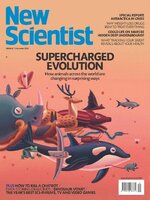 Dec 07 2024
Dec 07 2024
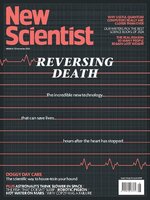 Nov 30 2024
Nov 30 2024
 Nov 23 2024
Nov 23 2024
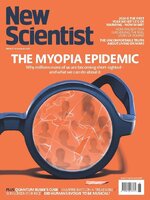 Nov 16 2024
Nov 16 2024
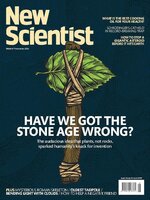 Nov 09 2024
Nov 09 2024
 Nov 02 2024
Nov 02 2024
 Oct 26 2024
Oct 26 2024
 Oct 19 2024
Oct 19 2024
 Oct 12 2024
Oct 12 2024
 Oct 05 2024
Oct 05 2024
 Sep 28 2024
Sep 28 2024
 Sep 21 2024
Sep 21 2024
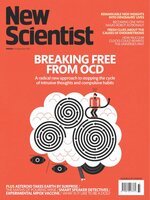 Sep 14 2024
Sep 14 2024
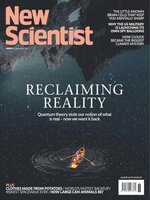 Sep 07 2024
Sep 07 2024
 Aug 31 2024
Aug 31 2024
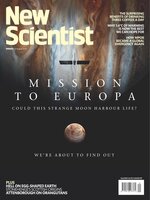 Aug 24 2024
Aug 24 2024
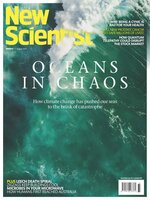 Aug 17 2024
Aug 17 2024
 Aug 10 2024
Aug 10 2024
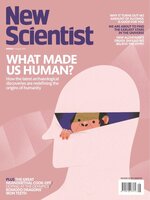 Aug 03 2024
Aug 03 2024
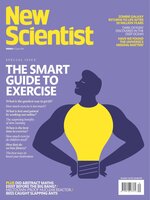 Jul 27 2024
Jul 27 2024
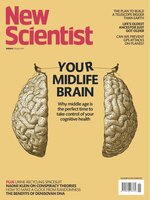 Jul 20 2024
Jul 20 2024
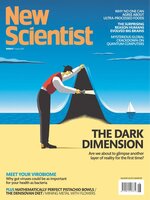 Jul 13 2024
Jul 13 2024
 Jul 06 2024
Jul 06 2024
